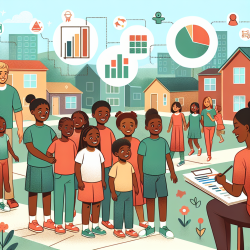Understanding the Impact of Social Support on Self-Worth in African American Youth
The research article "Social Support and Neighborhood Stressors Among African American Youth: Networks and Relations to Self-Worth" provides critical insights into how social support networks influence self-worth among African American adolescents. As practitioners dedicated to improving outcomes for children, it is essential to understand these dynamics to enhance our therapeutic interventions.
Key Findings from the Research
The study, conducted by McMahon, Felix, and Nagarajan, examined the role of social support from various sources such as parents, teachers, and peers, and its impact on self-worth among African American youth living in disadvantaged neighborhoods. The research highlights two primary models of social support:
- Main-Effects Model: This model suggests that social support has a direct positive effect on psychological outcomes, independent of stress levels. The study found that support from parents and close friends significantly contributes to higher self-worth among youth.
- Stress-Buffering Model: This model posits that social support mitigates the negative effects of stressors. However, the study did not find significant evidence supporting this model for self-worth among the participants.
Implications for Practitioners
For practitioners, these findings underscore the importance of fostering strong support networks for at-risk youth. Here are some actionable strategies:
- Engage Parents: Encourage parental involvement in therapeutic processes, as parental support has a lasting impact on a child's self-worth.
- Facilitate Peer Support: Create opportunities for positive peer interactions, as friendships contribute to concurrent self-worth.
- Leverage Extended Family Networks: Recognize and involve extended family members, particularly female relatives, who play a crucial role in providing support.
Encouraging Further Research
While the study provides valuable insights, it also highlights areas for further research. Practitioners are encouraged to explore:
- The specific types of support that most effectively enhance self-worth in different contexts.
- Longitudinal impacts of various support sources on self-worth and other psychological outcomes.
- Interventions that strengthen support networks in disadvantaged communities.
By integrating these findings into practice and contributing to ongoing research, practitioners can play a pivotal role in enhancing the self-worth and overall well-being of African American youth.
To read the original research paper, please follow this link: Social Support and Neighborhood Stressors Among African American Youth: Networks and Relations to Self-Worth.










